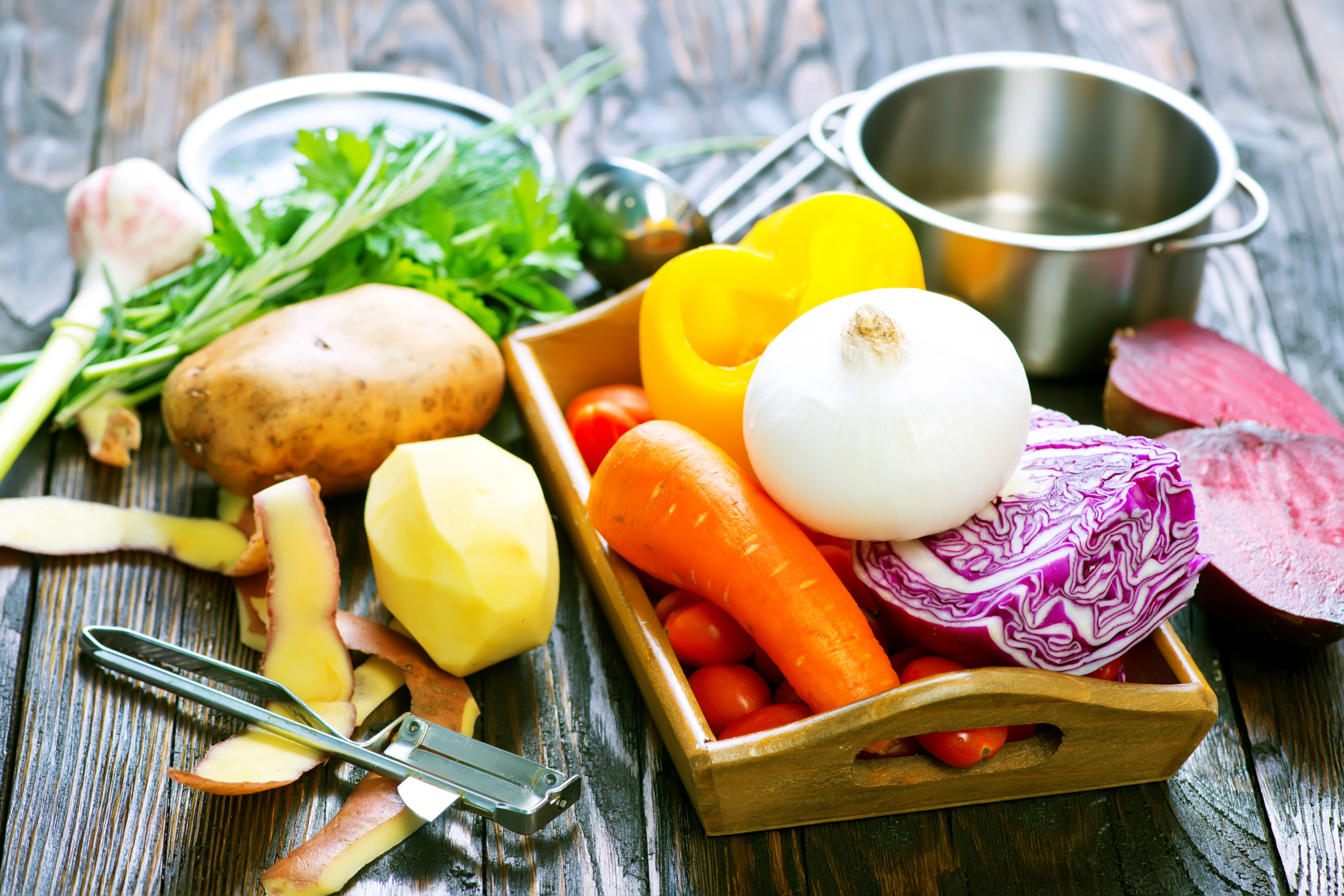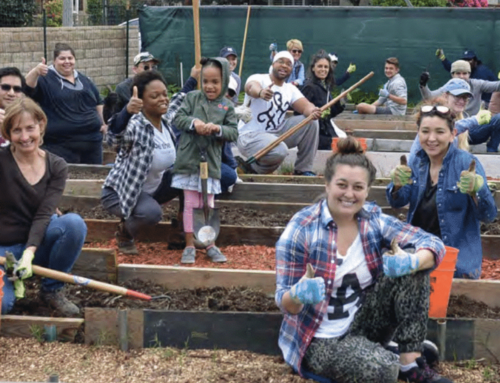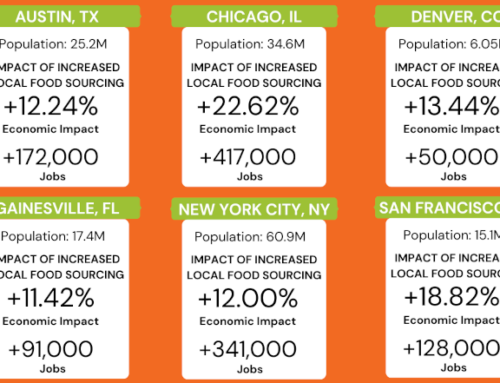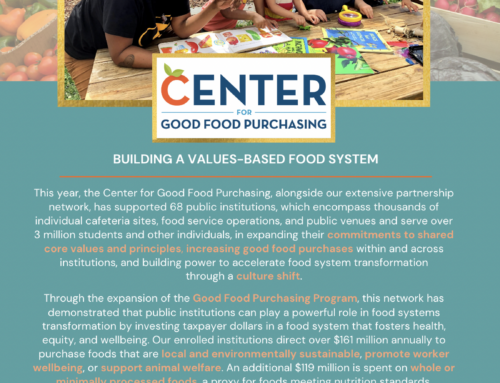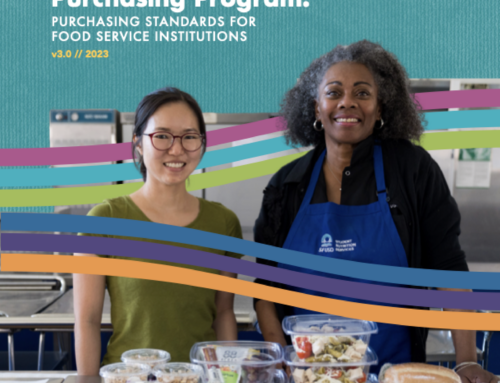Enhancing California’s Specialty Crops
The California Department of Food and Agriculture’s Specialty Crop Block Grant Program has awarded $450,000 to researchers in the UC Davis Center for Precision Medicine and Data Sciences (CPMDS) and several institutional partners to enhance the competitiveness of California specialty crops (i.e. fruits, vegetables, tree nuts and dried fruit).
UC Davis Health is building a ‘farm-to-hospital’ model to provide healthier foods to patients and employees alike. UC Davis Health is building a ‘farm-to-hospital’ model to provide healthier foods to patients and employees alike.
The two-and-a-half-year project will be led by Frederick J. Meyers, director of CPMDS and a professor of internal medicine, and Ronit Ridberg, manager of the center’s Precision Nutrition Program. The initiative will expand opportunities to partner UC Davis Health with small and mid-scale growers who focus on these crops.
‘Farm-to-Hospital’ model
These efforts are part of building a ‘farm-to-hospital’ model at UC Davis Health that Executive Chef Santana Diaz has envisioned since 2017, when he first joined the health system’s Food and Nutrition Services department.
“Clean, seasonal, and sustainable foods are the foundation of proactive health,” said Diaz. “It starts with trust and source transparency of what we actually put into our body. Our local communities can benefit from these practices given the available bounty of our geographic location. We have a responsibility to promote health in all ways.”
Specialty crops help drive California’s ag economy
Specialty crops comprise the majority of California’s agricultural production, driving a significant portion of the state’s agricultural economy. However, off-season demand and a desire for cheaper or processed produce leads to products sourced from out of state or Mexico. This practice draws revenue away from local economies and contributes to climate change by transporting food from more than fifty miles away. Of great concern, between 2012 to 2017 the number of farms in the Sacramento region declined, as farmers struggled to maintain financial viability. The economic crisis spurred by COVID-19 has further stressed regional food systems.
Collaboration is the best medicine
This project will bridge the expertise of campus-wide leaders in health care, nutrition, research and sustainable food systems to increase the proportion of produce procured for the hospital from California growers. The CPMDS is committed to creating effective multidisciplinary teams, in this case bringing together health care research, nutrition, culinary professionals and those providing technical assistance to growers. Chef Diaz and the hospital’s Food and Nutrition Services team will provide strategic orientation, professional development for frontline staff, and critical data reporting and analysis to track priority crops.
The UC Sustainable Agriculture Research and Education Program (UC SAREP), a major partner in this project, is a statewide program within UC Agriculture and National Resources (ANR) committed to the success and continued growth of farm-to-hospital programs. Among other priority areas, UC SAREP builds networks between researchers and practitioners, creates tools for farmers and practitioners, assesses existing programs and conducts original research. SAREP Director Gail Feenstra and Sustainable Supply Chain Project Analyst Gwenael Engelskirchen, in collaboration with subcontractors (the Center for Good Food Purchasing, Health Care Without Harm (HCWH) and the Community Alliance with Family Farmers), will ensure the project increases purchase of fresh California specialty crops and builds lasting pathways for growers and food hubs to sell to buyers like UC Davis Health.
Making nutritional health a priority
“For our Precision Nutrition Program, this project also helps us create some foundational data,” says Ridberg. “Building a baseline for the type and source of food procured for the hospital will allow us to engage in research examining the changes in dietary behavior or health outcomes that may occur for patients in our care and open up many opportunities for further research.”
UC Davis Health has the second largest production kitchen in Sacramento. Annually, the hospital spends $1.63 million on produce to serve 2.4 million meals per year. The change to more seasonal menus, and to specialty crops sourced from within California (and ideally within the region) will show how the hospital can use its sizable presence to promote both the health of its patients and employees and the local economy. The prioritization of local and seasonal ingredients is a statement on making nutritional health a priority.
“Our center believes in the value of team science,” added Meyers. “Not only is the project a natural fit for the way we conduct collaborative research, but we also believe strongly in the role diet and nutrition play in our health, especially through a variety of fresh fruits and vegetables. Why not make them extra fresh, and find them as close to the source as possible?”
Program funding
Funding for Expanding Opportunities in Hospital Food Service for Small and Mid-Scale California Specialty Crop Growers was made possible by the U.S. Department of Agriculture’s (USDA) Agricultural Marketing Service through grant AM200100XXXXG032. Its contents are solely the responsibility of the authors and do not necessarily represent the official views of the USDA.
